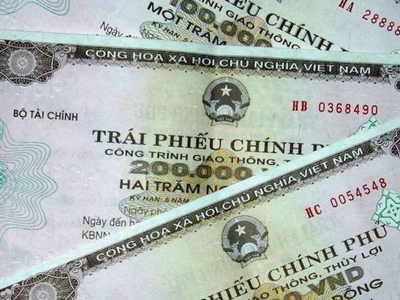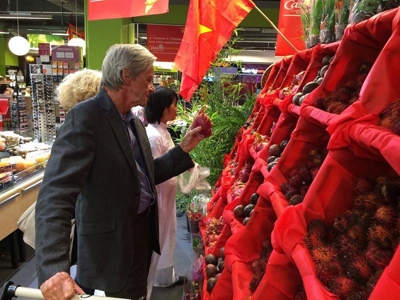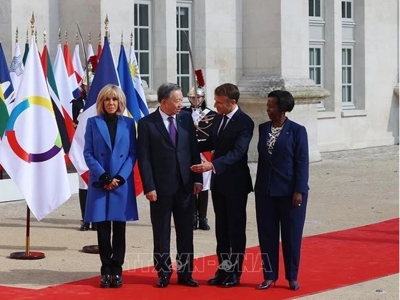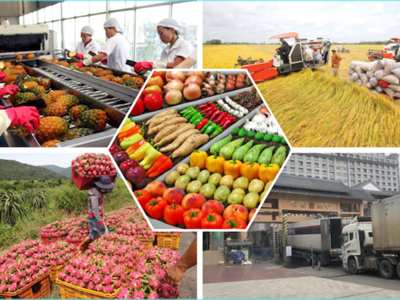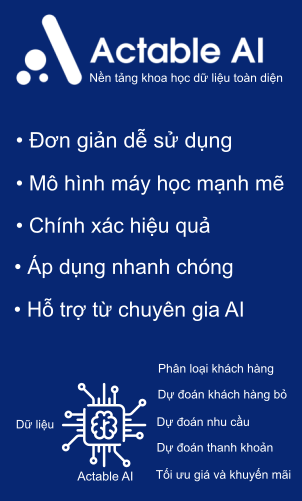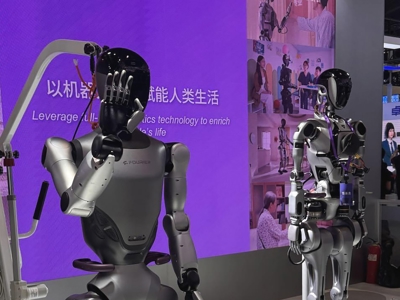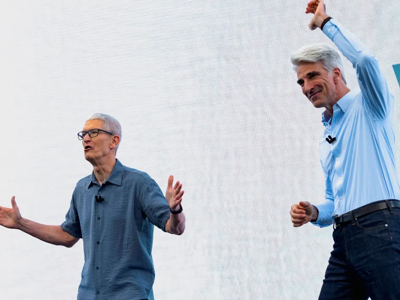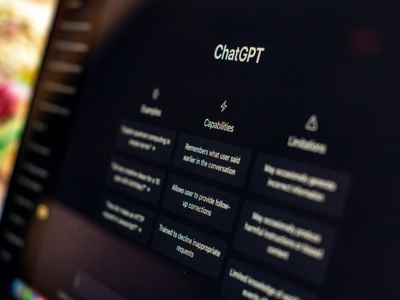Strengthening global francophonie: An interview with France’s Minister for Europe and Foreign Affairs Jean-Noël Barrot
In an exclusive interview with Vietnam Economic Times’ Dinh Pham Tran, France's Minister for Europe and Foreign Affairs Jean-Noël Barrot shares insights on the growing role of Francophonie in global diplomacy, digital sovereignty, and economic cooperation.

Thank you for your time, Minister. The Francophonie Summit this year highlights various crucial areas, from language preservation to innovation and entrepreneurship. How do you see the Francophonie evolving in these domains?
It’s a pleasure to speak with you. Francophonie is at the heart of our diplomatic and cultural strategy. First and foremost, it is about the French language, a bond that unites millions worldwide. The summit this year emphasizes not only linguistic unity but also the power of economic collaboration and technological innovation within the French-speaking world.
The event at Villers-Cotterêts, where we established the “Cité internationale de la francophonie”, embodies this mission. This institution will become a hub for experts and teachers from around the globe, focusing on the French language in its modern-day applications, including artificial intelligence.
How do you perceive the role of digital sovereignty in today’s political climate, particularly regarding foreign interference?
This is a subject close to my heart, having previously served as the Minister for Digital Affairs. Digital sovereignty is critical for preserving democratic values. In France, we’ve made substantial progress by putting tools and frameworks in place to combat the manipulation of public opinion through misinformation, while ensuring that freedom of expression remains intact.
Unfortunately, many political leaders, both in Europe and globally, still underestimate the threat that digital interference poses to democracies. Through initiatives such as “Francotech” and our collaborations with other French-speaking countries, we aim to create a strong, collective defense against these threats.
You mentioned “Francotech”, which has gained significant attention. Can you elaborate on its role in fostering entrepreneurship within the Francophonie?
Absolutely. “Francotech” symbolizes the future of economic cooperation within the French-speaking world. This summit has made innovation and entrepreneurship key themes, showcasing how Francophonie is not just about culture, but also about creating tangible economic opportunities.
The event at “Francotech” demonstrated the power of entrepreneurial collaboration, with start-ups and creators from various Francophonie countries forging partnerships. The idea is to transform these meetings into a recurring platform for innovation within the Francophonie, offering new avenues for trade and economic growth.
It seems that Francophonie is increasingly intertwined with bilateral relations. Could you clarify how these two spheres complement each other?
Indeed, there is a strong complementarity between bilateral relations and Francophonie. They enrich one another. For instance, during this summit, I’ve been able to strengthen bilateral ties with several counterparts. Our collaboration spans various sectors, and we aim to build new partnerships—particularly in the economic field—that will also benefit the wider Francophonie community. This complements our multilateral work within the Francophonie, demonstrating that bilateral and Francophonie cooperation can reinforce each other.
You spoke about the economic dimension. Could you touch on how Francophonie fits into France’s global trade strategy?
The French-speaking world represents 20% of international trade, which is a staggering figure. Through the lens of Francophonie, we see immense potential for expanding global partnerships, particularly with emerging markets. The economic cooperation within Francophonie is not just theoretical—it is pragmatic and concrete. We want our entrepreneurs, innovators, and start-ups to see the Francophonie world as a marketplace of ideas and opportunities. This is why we’ve dedicated significant resources to fostering entrepreneurial connections through events like “Francotech.”
There have been some tensions among Francophonie countries. How does Francophonie manage these conflicts?
Francophonie, as a multilateral organization, serves as a forum for dialogue and conflict resolution. The shared values of the French language create a unique space where even the most delicate issues can be addressed constructively. For instance, the return of Guinea to the International Organization of La Francophonie (OIF) is a significant achievement.
Despite internal challenges, Guinea’s decision to remain anchored to the Francophonie community speaks volumes about the strength and appeal of this organization. Francophonie’s diplomatic dimension enables us to mediate tensions and foster peace within our community.
What are France’s future ambitions for Francophonie under your leadership?
Our vision is twofold: first, to cultivate and promote the French language, particularly in the context of modern technologies such as AI, and second, to deepen economic and diplomatic cooperation among French-speaking nations.
President Macron will soon outline concrete initiatives to enhance these areas, including new platforms for educational collaboration and international trade. We want Francophonie to continue evolving as a vibrant, living entity that provides real benefits to its members, whether through cultural exchange or economic development.
Could you elaborate on your vision for the Francophonie relationship between France and Vietnam?
Vietnam is a key partner within the Francophonie world, with a vibrant community of 100 million people. We are looking forward to enhancing our cooperation in various sectors. While I haven’t had the chance to meet my Vietnamese counterpart yet, I am confident that our future discussions will be productive. Our goal is to foster deeper ties, particularly in education and trade, and to ensure that the French-speaking community in Vietnam continues to thrive. We’re excited about the possibilities this relationship holds for both countries.
Lastly, how would you describe the essence of Francophonie in one sentence?
Francophonie is a living, breathing community that goes beyond language—it is a space for cultural, economic, and diplomatic collaboration, rooted in shared values and a common vision for the future.



